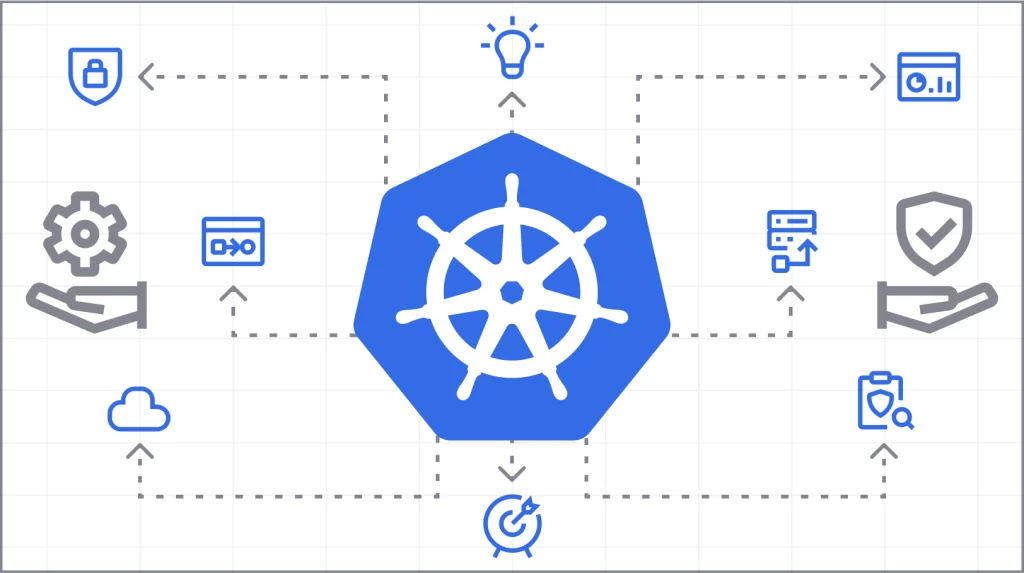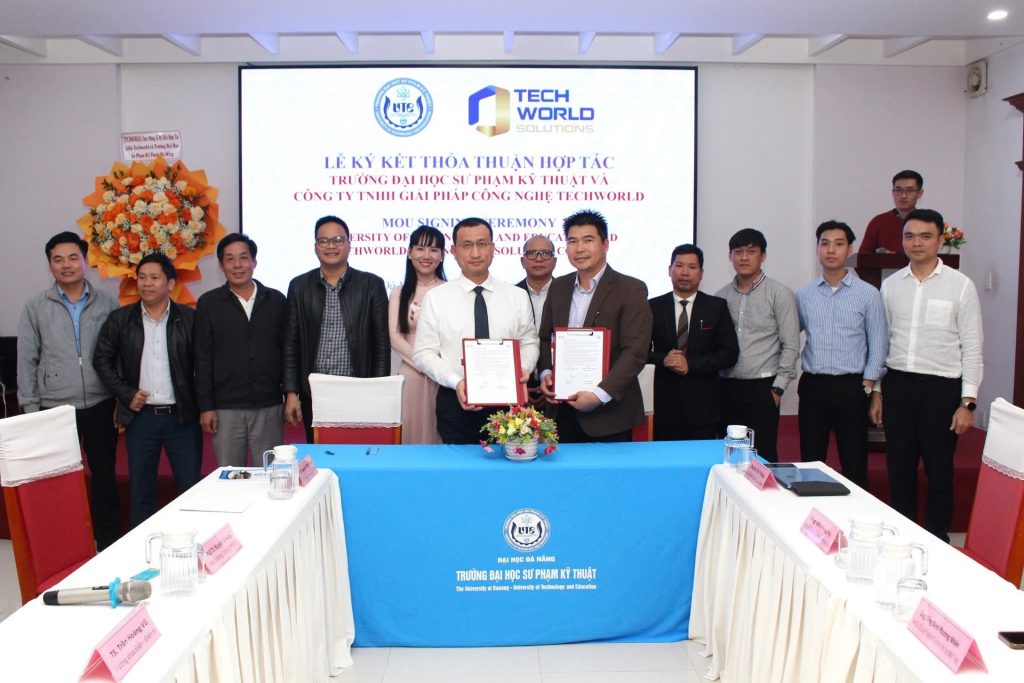Microsoft Dynamics 365: Driving Digital Transformation Across Industries
Introduction
Microsoft Dynamics 365 stands as a comprehensive suite of ERP and CRM applications, meticulously designed to usher organizations across various industries into the era of digital transformation. It serves as a potent tool for CIOs, industry experts, and solution architects alike, offering a robust platform to streamline operations, enhance customer engagement, and drive growth. At its core, Dynamics 365 embodies Microsoft’s commitment to innovation and customer-centricity, providing a unified solution that integrates ERP and CRM functionalities seamlessly.
This suite encompasses a wide array of applications tailored to meet the diverse needs of modern businesses, ranging from finance and operations to sales, marketing, customer service, and beyond. With Dynamics 365, organizations can leverage advanced capabilities such as AI-driven insights, predictive analytics, and intelligent automation to optimize processes, deliver personalized customer experiences, and gain a competitive edge in today’s rapidly evolving market landscape.
Furthermore, Microsoft Dynamics 365 operates on a cloud-based architecture, offering unparalleled flexibility, scalability, and accessibility. This cloud-native approach enables organizations to adapt swiftly to changing business requirements, scale their operations effortlessly, and access critical data and applications from anywhere, at any time. As a result, CIOs and solution architects can drive digital transformation initiatives with confidence, knowing that Dynamics 365 provides the foundation for agility, innovation, and sustained success in the digital age.

Finance and Operations Module
The Finance and Operations module within Microsoft Dynamics 365 serves as a cornerstone for organizations seeking to optimize their financial processes, streamline supply chain operations, enhance manufacturing efficiency, and improve overall business operations across various industries. From the perspective of CIOs, industry experts, and solution architects, understanding the capabilities of Dynamics 365 Finance and Operations is crucial for driving digital transformation initiatives and achieving business objectives effectively.
One of the key strengths of Dynamics 365 Finance and Operations lies in its ability to centralize and automate financial management processes, offering comprehensive tools for budgeting, forecasting, accounting, and financial reporting. This enables finance teams to gain real-time visibility into financial performance, make data-driven decisions, and ensure compliance with regulatory requirements. Additionally, the platform’s advanced analytics capabilities empower organizations to uncover actionable insights, identify trends, and optimize financial strategies for greater profitability.
In the realm of supply chain management, Dynamics 365 Finance and Operations provides robust features for inventory management, procurement, logistics, and demand planning. By integrating supply chain processes and leveraging AI-driven insights, organizations can enhance inventory visibility, minimize stockouts, reduce lead times, and optimize inventory levels to meet customer demand efficiently. Moreover, the platform facilitates collaboration with suppliers, distributors, and partners through seamless data exchange and workflow automation, thereby improving supply chain agility and resilience.
For manufacturing operations, Dynamics 365 Finance and Operations offers comprehensive functionality to support production planning, scheduling, resource allocation, and quality control. Whether it’s discrete, process, or lean manufacturing, the platform enables organizations to optimize production processes, minimize downtime, and ensure product quality and compliance. With features such as shop floor control, production monitoring, and IoT integration, manufacturers can achieve greater operational efficiency, reduce costs, and accelerate time-to-market for their products.
Dynamics 365 Finance and Operations serves as a versatile and scalable solution that caters to the unique needs of businesses across industries. Its integrated approach to financial management, supply chain optimization, and manufacturing excellence enables organizations to drive digital transformation, achieve operational excellence, and stay ahead in today’s competitive landscape. For CIOs, industry experts, and solution architects, leveraging the capabilities of Dynamics 365 Finance and Operations is instrumental in driving business growth, maximizing efficiency, and delivering value to stakeholders.
Sales Module
The Sales module within Microsoft Dynamics 365 plays a pivotal role in driving digital transformation across industries by enabling organizations to streamline sales processes, enhance customer engagement, and drive revenue growth through sales automation and CRM functionalities. From the perspective of CIOs, industry experts, and solution architects, understanding the capabilities of Dynamics 365 Sales is essential for optimizing sales operations, fostering customer relationships, and achieving business objectives effectively.
Dynamics 365 Sales provides a comprehensive suite of tools and features designed to empower sales teams at every stage of the customer journey. It offers robust functionality for lead management, opportunity tracking, pipeline management, and sales forecasting, allowing organizations to effectively manage their sales cycles and prioritize their efforts towards high-value opportunities. By centralizing customer data and interactions within a unified platform, Dynamics 365 Sales enables sales representatives to gain deeper insights into customer needs, preferences, and buying behaviours, thereby facilitating more personalized and targeted sales engagements.
One of the key strengths of Dynamics 365 Sales is its ability to enhance sales productivity through automation and integration capabilities. The platform seamlessly integrates with other Microsoft products such as Outlook, Teams, and LinkedIn, allowing sales professionals to access customer information, communicate with prospects, and collaborate with team members without switching between multiple applications. Moreover, Dynamics 365 Sales leverages AI-driven insights to provide sales reps with actionable recommendations, such as next best actions and cross-sell opportunities, to help them close deals faster and exceed revenue targets.
In addition to streamlining sales processes, Dynamics 365 Sales also facilitates stronger customer relationships and improved engagement. It offers functionality for managing customer interactions across various touchpoints, including email, phone calls, meetings, and social media channels, ensuring that sales reps can deliver personalized and consistent experiences throughout the buyer’s journey. By leveraging data-driven insights and predictive analytics, organizations can anticipate customer needs, address potential issues proactively, and nurture long-lasting relationships that drive customer loyalty and advocacy.
Furthermore, Dynamics 365 Sales provides robust analytics and reporting capabilities that enable organizations to measure sales performance, track key metrics, and identify trends over time. Sales managers can access real-time dashboards and reports to monitor team performance, identify areas for improvement, and make data-driven decisions to optimize sales strategies. By leveraging actionable insights derived from sales data, organizations can refine their sales processes, allocate resources effectively, and drive continuous improvement in sales performance and revenue generation.
Dynamics 365 Sales serves as a powerful tool for organizations looking to transform their sales operations, enhance customer engagement, and drive revenue growth. Its comprehensive set of features, integration capabilities, and AI-driven insights enable sales teams to work more efficiently, engage customers more effectively, and achieve greater success in today’s competitive marketplace. For CIOs, industry experts, and solution architects, leveraging the capabilities of Dynamics 365 Sales is essential for driving business growth, fostering innovation, and delivering value to stakeholders across industries.
Customer Service Module
The Dynamics 365 Customer Service module plays a pivotal role in enabling organizations to deliver exceptional customer support experiences, optimize case management, and foster stronger relationships with customers. From the perspective of CIOs, industry experts, and solution architects, understanding the capabilities of Dynamics 365 Customer Service is paramount for driving digital transformation initiatives centered around enhancing customer satisfaction and loyalty.
At its core, Dynamics 365 Customer Service offers a comprehensive set of tools and functionalities designed to streamline customer support processes and empower service agents to deliver personalized and efficient service. One of its key features is case management, which allows organizations to track and resolve customer inquiries, issues, and complaints effectively. Through a unified interface, agents can manage cases from various channels, including phone, email, chat, social media, and self-service portals, ensuring a consistent and seamless customer experience across touchpoints.
Furthermore, Dynamics 365 Customer Service leverages AI-driven insights and automation capabilities to optimize case routing, prioritize tasks, and suggest relevant solutions to agents in real-time. By harnessing the power of AI-driven chatbots and virtual agents, organizations can deflect routine inquiries, provide instant support, and reduce the workload on human agents, thereby improving overall efficiency and response times.
In addition to case management, Dynamics 365 Customer Service offers robust capabilities for knowledge management, enabling organizations to create, organize, and share knowledge articles and resources with both customers and agents. This facilitates self-service options for customers, empowering them to find answers to common questions and resolve issues independently, thereby reducing the volume of incoming support requests and improving agent productivity.
Moreover, Dynamics 365 Customer Service provides comprehensive insights and analytics capabilities that enable organizations to track key metrics such as customer satisfaction scores, first contact resolution rates, and average handling times. By leveraging these insights, organizations can identify trends, anticipate customer needs, and continuously improve service delivery processes to drive higher levels of customer satisfaction and loyalty.
Dynamics 365 Customer Service serves as a strategic tool for organizations looking to elevate their customer support operations and deliver exceptional experiences across every interaction touchpoint. By leveraging its advanced capabilities in case management, knowledge management, AI-driven automation, and analytics, organizations can differentiate themselves in the market, build stronger customer relationships, and drive business growth in today’s competitive landscape.
Field Service Module
The Dynamics 365 Field Service module plays a crucial role in optimizing field operations, enhancing scheduling efficiency, managing assets, and providing remote assistance to improve service delivery across various industries. From the perspective of CIOs, industry experts, and solution architects, understanding the capabilities of Dynamics 365 Field Service is essential for driving digital transformation initiatives focused on field service management and operational excellence.
At its core, Dynamics 365 Field Service offers a comprehensive set of tools and functionalities designed to streamline field service operations and empower field technicians to deliver timely and effective service to customers. One of its key features is intelligent scheduling, which leverages advanced algorithms and AI-driven insights to optimize scheduling and dispatching of field technicians based on factors such as technician skills, location, availability, and service level agreements (SLAs). By intelligently assigning and prioritizing service appointments, organizations can minimize travel time, maximize technician productivity, and improve customer satisfaction.
Furthermore, Dynamics 365 Field Service provides robust capabilities for managing assets and equipment throughout their lifecycle. Organizations can track asset information, maintenance history, and warranty details, enabling proactive maintenance and reducing downtime. With predictive maintenance capabilities powered by IoT sensors and machine learning algorithms, organizations can detect potential issues before they occur, schedule preventive maintenance activities, and avoid costly equipment failures.
Moreover, Dynamics 365 Field Service enables remote assistance and collaboration between field technicians and experts through features such as video calling, augmented reality (AR) annotations, and knowledge sharing. Field technicians can access real-time guidance and expertise from remote experts to troubleshoot complex issues, perform repairs, and complete service tasks more efficiently. This not only improves first-time fix rates but also reduces the need for repeat visits, enhancing overall service quality and customer satisfaction.
In addition to these core functionalities, Dynamics 365 Field Service offers comprehensive analytics and reporting capabilities that enable organizations to track key performance metrics such as technician utilization, service response times, and customer satisfaction scores. By analysing these metrics, organizations can identify areas for improvement, optimize resource allocation, and continuously enhance field service operations to meet evolving customer expectations and business objectives.
Dynamics 365 Field Service serves as a strategic solution for organizations looking to optimize their field service operations, drive operational efficiency, and deliver superior service experiences to customers. By leveraging its advanced capabilities in intelligent scheduling, asset management, remote assistance, and analytics, organizations can transform their field service operations and gain a competitive edge in today’s dynamic marketplace.
Commerce Module
The Dynamics 365 Commerce module is a powerful solution that empowers retail and e-commerce businesses to drive digital transformation and deliver personalized shopping experiences across various channels. From the perspective of CIOs, industry experts, and solution architects, understanding the capabilities of Dynamics 365 Commerce is crucial for businesses looking to optimize their retail operations, enhance customer engagement, and stay competitive in today’s digital marketplace.
At its core, Dynamics 365 Commerce offers a comprehensive set of tools and functionalities designed to streamline retail operations, manage merchandising activities, and deliver seamless omnichannel shopping experiences. One of its key features is omnichannel commerce, which enables retailers to unify their online and offline sales channels, including e-commerce websites, mobile apps, social media platforms, and brick-and-mortar stores. By providing customers with a consistent shopping experience across multiple touchpoints, organizations can increase customer satisfaction, drive repeat purchases, and foster brand loyalty.
Furthermore, Dynamics 365 Commerce enables businesses to personalize the shopping experience for individual customers through targeted promotions, product recommendations, and personalized content based on customer preferences, purchase history, and browsing behaviour. By leveraging customer data and AI-driven insights, retailers can deliver relevant and timely offers to customers, thereby increasing conversion rates and average order values.
In addition to personalized shopping experiences, Dynamics 365 Commerce offers robust capabilities for managing merchandising activities, including product catalog management, pricing and promotions, inventory optimization, and order fulfilment. Retailers can efficiently manage their product assortments, pricing strategies, and inventory levels to ensure product availability, minimize stockouts, and maximize sales opportunities. Moreover, advanced analytics and forecasting tools enable organizations to identify trends, forecast demand, and optimize merchandising strategies for improved profitability.
Another key aspect of Dynamics 365 Commerce is its integration with other Dynamics 365 modules, such as Sales, Marketing, and Customer Service, allowing businesses to create seamless end-to-end customer journeys and drive collaboration across departments. By integrating commerce data with customer insights and interactions, organizations can gain a 360-degree view of their customers and deliver personalized experiences at every touchpoint along the customer journey.
Furthermore, Dynamics 365 Commerce provides comprehensive reporting and analytics capabilities that enable businesses to track key performance metrics, such as sales performance, customer engagement, and inventory turnover. By analysing these metrics, organizations can identify areas for improvement, optimize their operations, and make data-driven decisions to drive business growth.
Dynamics 365 Commerce serves as a strategic solution for retail and e-commerce businesses seeking to transform their operations, enhance customer experiences, and drive growth in today’s digital-first world. By leveraging its advanced capabilities in omnichannel commerce, personalized marketing, merchandising, and analytics, organizations can differentiate themselves in the marketplace and capitalize on new opportunities for success.
Marketing Module
The Dynamics 365 Marketing module plays a pivotal role in enabling organizations to drive digital transformation by empowering them to create targeted marketing campaigns, automate lead management, and orchestrate customer journeys effectively. From the perspective of CIOs, industry experts, and solution architects, understanding the capabilities of Dynamics 365 Marketing is crucial for businesses looking to optimize their marketing strategies, enhance customer engagement, and achieve measurable results.
At its core, Dynamics 365 Marketing offers a comprehensive set of tools and functionalities designed to streamline marketing operations, personalize customer interactions, and maximize marketing ROI. One of its key features is campaign management, which allows marketers to plan, execute, and track multichannel marketing campaigns across various touchpoints, including email, web, social media, and events. By leveraging customizable templates, dynamic content, and audience segmentation capabilities, marketers can create targeted campaigns that resonate with their target audience and drive engagement.
Furthermore, Dynamics 365 Marketing enables organizations to automate lead management processes, from lead capture and qualification to nurturing and conversion. By integrating seamlessly with Dynamics 365 Sales, marketers can ensure a smooth handoff of qualified leads to sales teams, enabling them to prioritize follow-up activities and close deals more effectively. Automated lead scoring, routing, and tracking functionalities help organizations identify high-value leads and optimize their sales pipeline for improved conversion rates and revenue growth.
Another key aspect of Dynamics 365 Marketing is its ability to orchestrate customer journeys across multiple touchpoints and channels. Marketers can design personalized customer journeys that span the entire lifecycle, from initial awareness and acquisition to post-purchase engagement and retention. By mapping out customer interactions and triggers, organizations can deliver timely and relevant content, offers, and experiences that drive conversions and foster long-term customer relationships.
Moreover, Dynamics 365 Marketing offers robust analytics and reporting capabilities that enable marketers to track key performance metrics, measure campaign effectiveness, and gain insights into customer behaviour and preferences. By analysing data on campaign performance, lead generation, and customer engagement, organizations can identify trends, optimize their marketing strategies, and allocate resources more effectively to achieve their business objectives.
Additionally, Dynamics 365 Marketing integrates seamlessly with other Dynamics 365 modules, such as Sales and Customer Service, enabling organizations to create unified customer experiences and drive collaboration across departments. By sharing data and insights across marketing, sales, and service teams, organizations can ensure consistency and continuity in customer interactions, ultimately enhancing the overall customer experience and driving business growth.
Dynamics 365 Marketing serves as a strategic solution for organizations seeking to transform their marketing operations, drive customer engagement, and achieve measurable results in today’s digital landscape. By leveraging its advanced capabilities in campaign management, lead automation, customer journey orchestration, and analytics, organizations can create personalized experiences that resonate with customers, drive conversions, and fuel business growth.
Human Resources Module
Understanding the capabilities of Dynamics 365 Human Resources is vital for organizations seeking to drive digital transformation and optimize their human capital management processes. Dynamics 365 Human Resources is a comprehensive module designed to streamline HR operations, enhance talent acquisition and management, empower employee self-service, and optimize workforce productivity across diverse industries.
One of the key features of Dynamics 365 Human Resources is its ability to manage core HR processes efficiently. The module offers functionalities for managing employee data, including personal information, employment history, qualifications, and performance evaluations. By centralizing HR data in a single platform, organizations can improve data accuracy, streamline administrative tasks, and ensure compliance with regulatory requirements.
Moreover, Dynamics 365 Human Resources enables organizations to optimize their talent acquisition and management processes. The module provides tools for sourcing, recruiting, and onboarding new hires, as well as managing job postings, candidate pipelines, and interview processes. By leveraging AI-driven insights and analytics, organizations can identify top talent more effectively, streamline recruitment workflows, and reduce time-to-hire.
Another key aspect of Dynamics 365 Human Resources is its focus on empowering employees through self-service capabilities. The module offers employee self-service portals where employees can access relevant HR information, submit time-off requests, update personal details, and enrol in training programs. By providing employees with easy access to HR services and information, organizations can improve employee satisfaction, reduce administrative burden on HR teams, and foster a culture of self-service.
Additionally, Dynamics 365 Human Resources enables organizations to optimize workforce scheduling and planning. The module offers tools for workforce planning, scheduling, and optimization, allowing organizations to align staffing levels with business needs, forecast demand, and manage workforce capacity more effectively. By optimizing workforce planning processes, organizations can improve operational efficiency, reduce labour costs, and enhance overall productivity.
Furthermore, Dynamics 365 Human Resources provides advanced analytics and reporting capabilities that enable organizations to gain insights into workforce trends, performance metrics, and HR KPIs. By analysing data on employee engagement, retention, and performance, organizations can identify areas for improvement, make data-driven decisions, and implement strategies to optimize workforce productivity and effectiveness.
Dynamics 365 Human Resources serves as a strategic solution for organizations looking to transform their HR operations, attract and retain top talent, and optimize workforce performance. By leveraging its capabilities in HR process management, talent acquisition, employee self-service, and workforce optimization, organizations can streamline HR operations, enhance employee experiences, and drive business success across industries.
Azure Cloud Integration
From the viewpoint of CIOs, industry experts, and solution architects, the integration of Microsoft Dynamics 365 with Azure cloud services is instrumental in driving digital transformation initiatives across industries. Azure cloud integration enhances Dynamics 365 with scalability, security, and advanced analytics capabilities, empowering organizations to innovate and adapt to evolving business needs more effectively.
One of the key benefits of integrating Dynamics 365 with Azure cloud services is scalability. Azure provides a highly scalable cloud platform that enables organizations to scale their Dynamics 365 deployments dynamically based on demand. Whether it’s scaling up to accommodate increased workloads during peak periods or scaling down during periods of low activity, Azure offers the flexibility to adjust resources seamlessly, ensuring optimal performance and cost efficiency.
Moreover, Azure cloud integration enhances the security posture of Dynamics 365 deployments. Azure offers robust security features and compliance certifications, including data encryption, identity and access management, threat detection, and regulatory compliance standards. By leveraging Azure’s security capabilities, organizations can mitigate security risks, protect sensitive data, and ensure compliance with industry regulations and data privacy laws.
Additionally, integration with Azure enables Dynamics 365 to leverage advanced analytics capabilities for data-driven decision-making. Azure provides a suite of analytics services, including Azure Machine Learning, Azure Synapse Analytics, and Azure AI, that enable organizations to analyse large volumes of data, uncover actionable insights, and drive informed business decisions. By harnessing the power of Azure analytics, organizations can gain a deeper understanding of customer behaviour, market trends, and operational performance, enabling them to optimize processes and drive innovation.
Furthermore, Azure cloud integration facilitates seamless connectivity and interoperability between Dynamics 365 and other Azure services and applications. Whether it’s integrating with Azure IoT for connected device management, Azure DevOps for application lifecycle management, or Azure Data Lake Storage for data warehousing, organizations can leverage Azure’s extensive ecosystem to extend the capabilities of Dynamics 365 and build end-to-end solutions tailored to their specific business requirements.
Integration with Microsoft Azure cloud services plays a crucial role in driving digital transformation with Dynamics 365. By harnessing Azure’s scalability, security, and advanced analytics capabilities, organizations can innovate more rapidly, adapt to changing market conditions, and deliver exceptional customer experiences. Azure cloud integration empowers organizations to leverage the full potential of Dynamics 365 and accelerate their journey towards digital transformation across industries.
Power Platform Integration
From the standpoint of CIOs, industry experts, and solution architects, integrating Microsoft Dynamics 365 with the Power Platform is pivotal in driving digital transformation initiatives across industries. The Power Platform comprises several key components, including Power BI, Power Apps, Power Automate, and Power Virtual Agents, each of which extends the capabilities of Dynamics 365 and empowers organizations to achieve business transformation objectives through low-code/no-code app development, workflow automation, and AI-driven insights.
Power BI, a powerful business analytics tool within the Power Platform, enables organizations to visualize and analyse data from various sources, including Dynamics 365, to gain actionable insights into their business operations. With Power BI’s intuitive interface and rich visualization capabilities, users can create interactive reports and dashboards that provide valuable insights into key performance indicators, trends, and patterns, empowering decision-makers to make informed decisions quickly.
Power Apps, another component of the Power Platform, enables users to build custom business applications without writing complex code. By leveraging pre-built templates and drag-and-drop functionality, organizations can rapidly develop tailored applications to address specific business needs, such as streamlining processes, automating tasks, or enhancing customer experiences. Integration with Dynamics 365 allows users to access and manipulate data directly within Power Apps, facilitating seamless interaction between business applications and CRM/ERP systems.
Power Automate, formerly known as Microsoft Flow, is a workflow automation tool that allows organizations to automate repetitive tasks and streamline business processes across multiple applications and services. With Power Automate, users can create automated workflows that trigger actions based on predefined conditions, such as sending notifications, updating records, or executing business logic. Integration with Dynamics 365 enables organizations to automate key processes, such as lead nurturing, approval workflows, and customer service ticket escalation, improving operational efficiency and productivity.
Power Virtual Agents, the AI-driven chatbot solution within the Power Platform, enables organizations to build and deploy intelligent virtual agents without writing code. By leveraging natural language processing and pre-built AI models, organizations can create virtual agents that interact with customers and employees, answering questions, providing support, and automating routine tasks. Integration with Dynamics 365 allows virtual agents to access customer data and provide personalized assistance, enhancing the overall customer service experience.
Integrating Microsoft Dynamics 365 with the Power Platform empowers organizations to accelerate their digital transformation journey by leveraging low-code/no-code app development, workflow automation, and AI-driven insights. By combining the capabilities of Dynamics 365 with the Power Platform, organizations can unlock new opportunities for innovation, improve operational efficiency, and deliver exceptional customer experiences across industries.
AI and Machine Learning Integration
the integration of AI and machine learning capabilities into Microsoft Dynamics 365 represents a significant advancement in driving digital transformation across industries. Dynamics 365 leverages Azure AI services to harness the power of predictive analytics, sentiment analysis, and intelligent insights, enabling organizations to optimize business processes and enhance decision-making effectively.
One key aspect of AI integration in Dynamics 365 is predictive analytics, which enables organizations to forecast future trends, behaviours, and outcomes based on historical data and patterns. By analysing large datasets within Dynamics 365 using machine learning algorithms, organizations can identify hidden patterns, correlations, and insights that help them anticipate customer needs, predict market trends, and make proactive business decisions. Predictive analytics capabilities in Dynamics 365 span various areas, including sales forecasting, demand planning, inventory optimization, and customer churn prediction, enabling organizations to optimize resource allocation, mitigate risks, and capitalize on opportunities.
Sentiment analysis is another critical AI-powered feature in Dynamics 365 that helps organizations understand and analyse customer sentiments, opinions, and emotions expressed in textual data such as customer feedback, social media posts, and support tickets. By leveraging natural language processing (NLP) and machine learning algorithms, Dynamics 365 can automatically analyse and categorize text data to identify positive, negative, or neutral sentiments, as well as extract key topics and themes. Sentiment analysis enables organizations to gain valuable insights into customer perceptions, preferences, and satisfaction levels, allowing them to tailor their products, services, and marketing strategies to better meet customer needs and expectations.
Moreover, Dynamics 365 utilizes intelligent insights powered by AI to provide actionable recommendations and suggestions to users based on real-time data and contextual information. By analysing vast amounts of data collected from various sources, including customer interactions, sales transactions, and market trends, Dynamics 365 can generate personalized recommendations, next best actions, and insights to help users make informed decisions and take proactive steps to drive business outcomes. Whether it’s recommending the most relevant products to upsell or cross-sell to a customer, identifying opportunities for process optimization, or flagging potential risks or anomalies, intelligent insights in Dynamics 365 empower users to act with confidence and agility in today’s dynamic business environment.
The integration of AI and machine learning capabilities into Microsoft Dynamics 365 represents a game-changer for organizations looking to drive digital transformation initiatives. By leveraging Azure AI services for predictive analytics, sentiment analysis, and intelligent insights, Dynamics 365 enables organizations to unlock new levels of efficiency, innovation, and customer engagement across industries, ultimately driving business success in the digital age.
Robotic Process Automation (RPA)
the integration of Robotic Process Automation (RPA) with Microsoft Dynamics 365 presents a significant opportunity for driving digital transformation across industries. By leveraging Microsoft Power Automate, organizations can automate repetitive tasks and streamline business processes within Dynamics 365, resulting in enhanced efficiency, productivity gains, and improved operational outcomes.
One key aspect of RPA integration with Dynamics 365 is the ability to automate mundane and repetitive tasks that are typically performed manually by employees. These tasks can include data entry, document processing, form submissions, and more. By utilizing Power Automate’s drag-and-drop interface and pre-built connectors, organizations can easily create automated workflows that orchestrate tasks across various applications and systems, including Dynamics 365 modules such as Finance and Operations, Sales, Customer Service, and more. This automation not only reduces the time and effort required to complete these tasks but also minimizes the risk of errors and inconsistencies, leading to improved data accuracy and operational efficiency.
Furthermore, RPA integration enables organizations to streamline complex business processes that involve multiple steps and systems within Dynamics 365. For example, organizations can automate the end-to-end order-to-cash process, which involves tasks such as order creation, inventory management, invoicing, and payment processing. By automating these processes using Power Automate, organizations can accelerate cycle times, reduce manual intervention, and improve overall process efficiency. Additionally, RPA can be applied to various other business processes across different departments, such as procurement, human resources, and supply chain management, enabling organizations to drive operational excellence and cost savings.
Another benefit of RPA integration with Dynamics 365 is the ability to achieve greater scalability and agility in responding to changing business needs. As organizations grow and evolve, they often face challenges related to handling increased transaction volumes, scaling operations, and adapting to new business requirements. By leveraging RPA capabilities, organizations can quickly deploy and scale automated workflows to accommodate changes in business processes, regulations, or market conditions. This agility allows organizations to stay competitive in dynamic environments and drive continuous improvement in their operations.
Moreover, RPA integration with Dynamics 365 enables organizations to free up employees’ time from routine tasks, allowing them to focus on higher-value activities that require human judgment, creativity, and expertise. By automating repetitive tasks, employees can dedicate more time to strategic initiatives, customer engagement, and innovation, ultimately driving business growth and competitive advantage.
The integration of RPA with Microsoft Dynamics 365 through Power Automate offers organizations a powerful tool for driving digital transformation and optimizing business processes. By automating repetitive tasks, streamlining complex workflows, and enabling greater scalability and agility, RPA integration empowers organizations to achieve higher efficiency, productivity, and operational excellence across industries.
Blockchain Integration
The integration of Robotic Process Automation (RPA) with Microsoft Dynamics 365 presents a significant opportunity for driving digital transformation across industries. By leveraging Microsoft Power Automate, organizations can automate repetitive tasks and streamline business processes within Dynamics 365, resulting in enhanced efficiency, productivity gains, and improved operational outcomes.
One key aspect of RPA integration with Dynamics 365 is the ability to automate mundane and repetitive tasks that are typically performed manually by employees. These tasks can include data entry, document processing, form submissions, and more. By utilizing Power Automate’s drag-and-drop interface and pre-built connectors, organizations can easily create automated workflows that orchestrate tasks across various applications and systems, including Dynamics 365 modules such as Finance and Operations, Sales, Customer Service, and more. This automation not only reduces the time and effort required to complete these tasks but also minimizes the risk of errors and inconsistencies, leading to improved data accuracy and operational efficiency.
Furthermore, RPA integration enables organizations to streamline complex business processes that involve multiple steps and systems within Dynamics 365. For example, organizations can automate the end-to-end order-to-cash process, which involves tasks such as order creation, inventory management, invoicing, and payment processing. By automating these processes using Power Automate, organizations can accelerate cycle times, reduce manual intervention, and improve overall process efficiency. Additionally, RPA can be applied to various other business processes across different departments, such as procurement, human resources, and supply chain management, enabling organizations to drive operational excellence and cost savings.
Another benefit of RPA integration with Dynamics 365 is the ability to achieve greater scalability and agility in responding to changing business needs. As organizations grow and evolve, they often face challenges related to handling increased transaction volumes, scaling operations, and adapting to new business requirements. By leveraging RPA capabilities, organizations can quickly deploy and scale automated workflows to accommodate changes in business processes, regulations, or market conditions. This agility allows organizations to stay competitive in dynamic environments and drive continuous improvement in their operations.
Moreover, RPA integration with Dynamics 365 enables organizations to free up employees’ time from routine tasks, allowing them to focus on higher-value activities that require human judgment, creativity, and expertise. By automating repetitive tasks, employees can dedicate more time to strategic initiatives, customer engagement, and innovation, ultimately driving business growth and competitive advantage.
The integration of RPA with Microsoft Dynamics 365 through Power Automate offers organizations a powerful tool for driving digital transformation and optimizing business processes. By automating repetitive tasks, streamlining complex workflows, and enabling greater scalability and agility, RPA integration empowers organizations to achieve higher efficiency, productivity, and operational excellence across industries.
Internet of Things (IoT) Integration
The integration of Internet of Things (IoT) with Microsoft Dynamics 365 represents a significant advancement in driving digital transformation across industries. By seamlessly integrating with Azure IoT Hub, Dynamics 365 enables organizations to harness the power of IoT data to gain actionable insights, optimize operations, and deliver enhanced customer experiences.
Azure IoT Hub serves as a central hub for ingesting, processing, and managing IoT data from connected devices, sensors, and equipment. Dynamics 365 leverages this integration to collect real-time data streams from IoT devices deployed across various locations, such as manufacturing plants, warehouses, vehicles, or smart infrastructure. This data encompasses a wide range of telemetry, including temperature, humidity, pressure, vibration, location, and more, depending on the type of sensors and devices deployed.
Once the IoT data is ingested into Azure IoT Hub, Dynamics 365 utilizes advanced analytics and machine learning capabilities to analyse and derive insights from the data. For example, organizations can leverage predictive maintenance algorithms to forecast equipment failures before they occur, thereby reducing downtime, minimizing maintenance costs, and optimizing asset performance. By proactively monitoring the health and condition of assets in real time, organizations can implement preventive maintenance strategies and schedule maintenance activities based on actual usage and asset condition, rather than fixed schedules or reactive interventions.
Furthermore, Dynamics 365 enables organizations to track and manage assets more effectively through IoT integration. By combining IoT data with business data stored in Dynamics 365, organizations can gain a holistic view of asset performance, utilization, and lifecycle across their entire operation. For instance, in industries such as logistics, transportation, or healthcare, organizations can track the location, status, and condition of assets in real time, enabling more efficient inventory management, route optimization, and asset utilization.
Additionally, IoT integration with Dynamics 365 enables organizations to enhance customer experiences and engagement by delivering personalized services and proactive support. For example, in retail environments, IoT-enabled devices such as beacons or RFID tags can track customer movements and preferences within physical stores, enabling retailers to deliver targeted promotions, personalized recommendations, and seamless shopping experiences. Similarly, in the field service industry, IoT data from connected devices can provide technicians with real-time insights into equipment performance and diagnostics, enabling them to diagnose issues remotely, dispatch the right resources, and resolve problems more efficiently.
The integration of IoT with Microsoft Dynamics 365 through Azure IoT Hub offers organizations a powerful platform for leveraging IoT data to drive operational efficiency, improve asset management, and enhance customer experiences across industries. By harnessing the capabilities of IoT analytics, predictive maintenance, and asset tracking, organizations can unlock new opportunities for innovation, optimization, and business growth in the era of digital transformation.
AR/VR and Mixed Reality Integration
the integration of augmented reality (AR), virtual reality (VR), and mixed reality (MR) with Microsoft Dynamics 365 presents an innovative approach to enhancing business processes and driving digital transformation across industries. Dynamics 365 offers two key solutions in this domain: Remote Assist and Guides, which leverage AR, VR, and mixed reality technologies to facilitate remote assistance, training, and maintenance tasks.
Dynamics 365 Remote Assist enables organizations to leverage augmented reality technology to provide remote assistance to field technicians, service engineers, and frontline workers. Using compatible AR devices such as Microsoft HoloLens or mobile devices, users can collaborate in real-time with remote experts to troubleshoot issues, perform maintenance tasks, and resolve complex problems. The integration with Dynamics 365 allows users to access relevant customer and equipment data directly within the AR interface, enabling them to make informed decisions and complete tasks more efficiently. This capability is particularly valuable in industries such as manufacturing, field service, and healthcare, where timely and accurate assistance is essential for maintaining operational efficiency and ensuring customer satisfaction.
Dynamics 365 Guides enables organizations to leverage mixed reality technology to create interactive training modules and instructional guides for employees. With Guides, organizations can author step-by-step instructions, 3D models, and holographic overlays that provide immersive and hands-on training experiences. Employees can then access these guides using compatible mixed reality devices, such as HoloLens, to learn new procedures, perform equipment maintenance, or undergo on-the-job training. By integrating Guides with Dynamics 365, organizations can track training progress, assess employee performance, and ensure compliance with industry regulations. This capability is particularly valuable in industries such as manufacturing, construction, and aerospace, where complex procedures and safety protocols are paramount.
The integration of AR, VR, and mixed reality with Microsoft Dynamics 365 offers organizations a powerful platform for transforming business processes, enhancing employee productivity, and delivering superior customer experiences. By leveraging Remote Assist and Guides, organizations can enable remote collaboration, streamline training processes, and improve operational efficiency across industries. As AR, VR, and mixed reality technologies continue to evolve, their integration with Dynamics 365 will play a crucial role in driving digital transformation and innovation in the workplace.
Industry-specific Solutions
industry-specific solutions built on Microsoft Dynamics 365 and Azure play a pivotal role in driving digital transformation across various sectors. These solutions are tailored to address the unique challenges and requirements of specific industries, offering features, functionalities, and compliance capabilities that align with industry standards and regulations. Let’s delve into some key industry-specific solutions:
Healthcare: Dynamics 365 offers healthcare organizations a comprehensive solution suite designed to improve patient care, streamline operations, and enhance clinical outcomes. Features such as patient management, electronic health record (EHR) integration, care coordination, and telehealth capabilities enable healthcare providers to deliver personalized care, optimize workflows, and drive operational efficiency. Integration with Azure ensures compliance with healthcare regulations such as HIPAA and enables advanced analytics for population health management and predictive analytics for disease prevention.
Manufacturing: Dynamics 365 provides manufacturing companies with tools to optimize production processes, manage supply chains, and enhance product quality. Industry-specific functionalities include demand forecasting, production planning, inventory management, and shop floor control, enabling manufacturers to streamline operations, reduce costs, and accelerate time-to-market. Integration with Azure IoT Hub allows manufacturers to harness the power of IoT data for predictive maintenance, asset tracking, and real-time monitoring of equipment performance.
Retail: Dynamics 365 empowers retailers to deliver personalized shopping experiences, optimize merchandising strategies, and drive customer loyalty. Industry-specific features include omni-channel commerce, inventory management, point-of-sale (POS) integration, and customer insights, enabling retailers to engage customers across digital and physical channels seamlessly. Integration with Azure enables retailers to leverage AI-powered analytics for demand forecasting, pricing optimization, and personalized marketing campaigns.
Financial Services: Dynamics 365 offers financial services institutions solutions to streamline banking operations, enhance customer engagement, and ensure regulatory compliance. Features such as banking core integration, customer relationship management (CRM), loan origination, and risk management enable banks to deliver personalized financial services, mitigate risks, and comply with regulations such as GDPR and Dodd-Frank. Integration with Azure provides robust security measures, data encryption, and compliance controls to safeguard sensitive financial information.
Government: Dynamics 365 provides government agencies with solutions to modernize citizen services, improve operational efficiency, and enhance transparency and accountability. Features such as case management, citizen engagement portals, grants management, and regulatory compliance enable government agencies to deliver efficient and responsive public services. Integration with Azure Government ensures compliance with strict security and regulatory requirements, such as FedRAMP and FISMA, while enabling agencies to leverage cloud-based analytics for data-driven decision-making.
Industry-specific solutions built on Dynamics 365 and Azure offer organizations in healthcare, manufacturing, retail, financial services, and government sectors the tools and capabilities they need to drive digital transformation, improve business processes, and deliver superior customer experiences. By leveraging these solutions, organizations can stay competitive, innovate, and thrive in today’s rapidly evolving business landscape.
Case Studies
real-world case studies serve as powerful examples of how Microsoft Dynamics 365 drives digital transformation and delivers tangible business outcomes across industries. Let’s explore some illustrative case studies:
Healthcare: A large hospital network implemented Dynamics 365 to streamline patient care processes and enhance operational efficiency. By integrating electronic health records (EHR) with Dynamics 365, the hospital improved care coordination, reduced administrative burdens, and minimized errors. As a result, patient satisfaction scores increased, and clinicians could access comprehensive patient data in real-time, leading to better-informed decision-making and improved clinical outcomes.
Manufacturing: A global manufacturing company adopted Dynamics 365 for its end-to-end supply chain management needs. By leveraging Dynamics 365 Finance and Operations, the company optimized production planning, inventory management, and supplier collaboration. With real-time visibility into inventory levels and demand forecasts, the company reduced stockouts, minimized excess inventory, and improved on-time delivery performance. Additionally, integration with Azure IoT Hub enabled predictive maintenance of critical equipment, reducing downtime and maintenance costs.
Retail: A leading retail chain deployed Dynamics 365 Commerce to transform its customer experience and drive sales growth. By leveraging Dynamics 365 Marketing and Customer Insights, the retailer personalized marketing campaigns, tailored product recommendations, and optimized pricing strategies based on customer preferences and purchasing behaviour. As a result, the retailer saw a significant increase in customer engagement, conversion rates, and overall sales revenue.
Financial Services: A multinational bank implemented Dynamics 365 Customer Service to enhance its customer support operations. By centralizing customer interactions and case management processes, the bank improved response times, resolved customer inquiries more efficiently, and increased customer satisfaction scores. Integration with Azure AI services enabled the bank to automate routine tasks, such as account inquiries and transaction disputes, freeing up agents to focus on more complex issues and providing personalized service to high-value customers.
Government: A city government leveraged Dynamics 365 and Azure to modernize its citizen services and improve civic engagement. By deploying Dynamics 365 Citizen Engagement Portals and Case Management, the city streamlined service requests, permit applications, and public inquiries. Integration with Azure Government Cloud ensured data security and compliance with regulatory requirements, while advanced analytics provided insights into citizen needs and service delivery performance, enabling the city to make data-driven decisions and allocate resources more effectively.
These case studies highlight the diverse applications of Dynamics 365 across industries and underscore its role in driving digital transformation, enhancing operational efficiency, and delivering superior customer experiences. By learning from these real-world examples, organizations can gain valuable insights into the potential benefits of adopting Dynamics 365 and develop strategies to harness its full potential for their own business transformation initiatives.
Future Trends and Innovations
it’s crucial to stay ahead of emerging trends and innovations in digital transformation to ensure that organizations remain competitive and relevant in the ever-evolving landscape. Microsoft Dynamics 365, with its adaptability and integration capabilities, is well-positioned to support businesses in embracing these advancements. Let’s delve into some key future trends and innovations and how Dynamics 365 aligns with them:
AI-Driven Personalization: As AI continues to advance, organizations are increasingly leveraging AI-driven personalization to deliver tailored experiences to customers. Dynamics 365 integrates AI capabilities through Azure services, enabling businesses to analyse vast amounts of customer data and derive actionable insights. With Dynamics 365 Customer Insights, organizations can gain a deeper understanding of customer preferences, behaviour patterns, and sentiment, allowing them to personalize interactions across marketing, sales, and customer service touchpoints. By leveraging AI-driven recommendations and predictive analytics, businesses can anticipate customer needs, optimize engagement strategies, and drive customer loyalty.
Edge Computing: Edge computing, which involves processing data closer to its source rather than in centralized data centers, is gaining traction as organizations seek to minimize latency, improve real-time decision-making, and enhance data privacy and security. Dynamics 365 supports edge computing scenarios by enabling organizations to deploy intelligent edge solutions that integrate seamlessly with their existing Dynamics 365 environment. For example, in manufacturing settings, Dynamics 365 Connected Field Service leverages IoT sensors and edge devices to monitor equipment health and performance in real-time, enabling predictive maintenance and reducing downtime. By extending Dynamics 365 capabilities to the edge, organizations can harness the power of data analytics and AI in distributed environments while maintaining scalability and reliability.
Immersive Technologies: Immersive technologies such as augmented reality (AR), virtual reality (VR), and mixed reality (MR) are revolutionizing how businesses interact with customers, employees, and products. Dynamics 365 Remote Assist and Guides enable organizations to leverage AR and MR technologies for remote assistance, training, and maintenance tasks. For example, field service technicians can use Dynamics 365 Remote Assist to collaborate with remote experts and access relevant information overlaid on their field of view, improving troubleshooting efficiency and reducing downtime. Similarly, Dynamics 365 Guides allows organizations to create interactive, step-by-step instructions for hands-on training and skill development using VR headsets. By integrating immersive technologies into Dynamics 365 workflows, organizations can enhance employee productivity, accelerate learning curves, and deliver immersive customer experiences.
Microsoft Dynamics 365 is not only equipped to support current digital transformation initiatives but also poised to embrace future trends and innovations. By leveraging AI-driven personalization, edge computing capabilities, and immersive technologies, organizations can unlock new opportunities for innovation, differentiation, and growth with Dynamics 365 as their digital transformation platform of choice.
Conclusion
In conclusion, Microsoft Dynamics 365 stands as a powerful catalyst for business transformation, offering organizations across industries the tools they need to thrive in today’s rapidly evolving digital landscape. From streamlining operations to enhancing customer experiences, Dynamics 365 empowers businesses to unlock new opportunities and achieve unprecedented levels of success.
At its core, Dynamics 365 represents more than just a suite of ERP and CRM applications—it embodies Microsoft’s commitment to innovation and its vision for the future of business technology. By providing a comprehensive platform that seamlessly integrates with other Microsoft products and services, Dynamics 365 enables organizations to harness the full potential of their data and technology investments.
Through case studies, industry-specific solutions, and real-world examples, we’ve seen how Dynamics 365 drives tangible results and delivers value across various sectors, including healthcare, manufacturing, retail, financial services, and government. Whether it’s optimizing supply chain operations, personalizing customer experiences, or improving workforce management, Dynamics 365 offers the flexibility and scalability needed to address the unique challenges and opportunities facing modern businesses.
Looking ahead, Dynamics 365 is well-positioned to embrace emerging trends and innovations in digital transformation. As AI-driven personalization, edge computing, and immersive technologies continue to shape the future of business, Dynamics 365 remains at the forefront, helping organizations stay ahead of the curve and adapt to changing market dynamics.
In essence, the power of Microsoft Dynamics 365 lies in its ability to drive innovation, agility, and competitiveness in today’s dynamic business environment. By leveraging the capabilities of Dynamics 365, organizations can unlock new possibilities, drive growth, and chart a course towards a successful digital future.
- Software Composition: Why, What, and How
- 10 Advantages and Capabilities of Dynamics 365 Integrations with Microsoft Applications
- Siemens delivers innovations in immersive engineering and artificial intelligence to enable the industrial metaverse
- Lotus Notes Migration: 4 Reasons to Migrate Apps to the Cloud
- What is Component-Based Architecture?
Bài viết cùng chủ đề:
-
Leave Request – Quản lý nghỉ phép thông minh trong một mô-đun CRM duy nhất
-
Techworld Solutions Đồng Hành Cùng UTE Trong Đào Tạo Nhân Lực Chất Lượng Cao
-
Microsoft Office chính thức chuyển thành Microsoft 365
-
Epicor Asia & Techworld Solutions Vietnam Chính Thức Công Bố Quan Hệ Đối Tác Chiến Lược, Mở Rộng Hệ Sinh Thái Giải Pháp Tại Việt Nam và Khu Vực
-
Chúc mừng đội ngũ Microsoft!
-
Giá trị của Microservices Doanh Nghiệp với Low-Code
-
Sự Tiến Hóa Tiếp Theo Của Mendix Cloud: Đón Nhận Kubernetes Để Xây Dựng Nền Tảng Sẵn Sàng Cho Tương Lai
-
Optimizing Production with Epicor ERP – Specialized Solutions for Complex Industries
-
Addressing the Knowledge Gap
-
AI-Assisted Development in Action with Mendix
-
Empowering Mobile Innovation
-
How to Upgrade Legacy Systems to Compete in the Cloud Age
-
TECHWORLD SOLUTIONS VIỆT NAM VÀ ĐẠI HỌC SPKT ĐÀ NẴNG KÝ KẾT HỢP TÁC TRIỂN KHAI TRUNG TÂM NGHIÊN CỨU & ĐÀO TẠO CÔNG NGHỆ SỐ
-
How to Architect Your Mobile Customer & Employee Experiences
-
PVI Gia Định Partners with Techworld Solutions Vietnam to Revolutionize Insurance Management
-
ESEC Group Partners with Techworld Solutions Vietnam to Implement Microsoft Dynamics 365 ERP

















